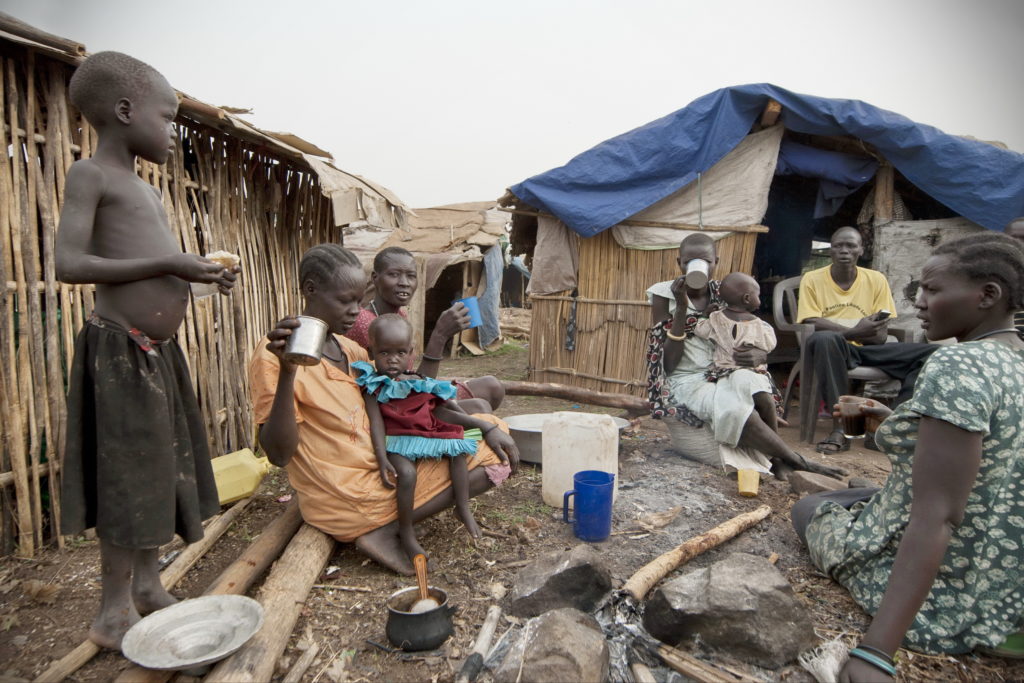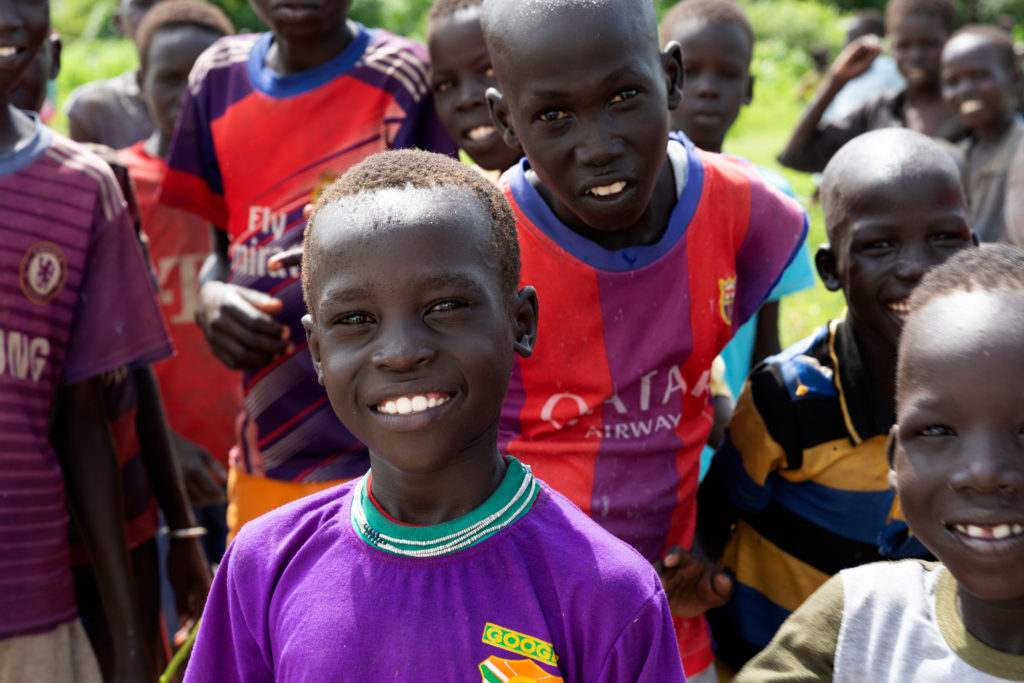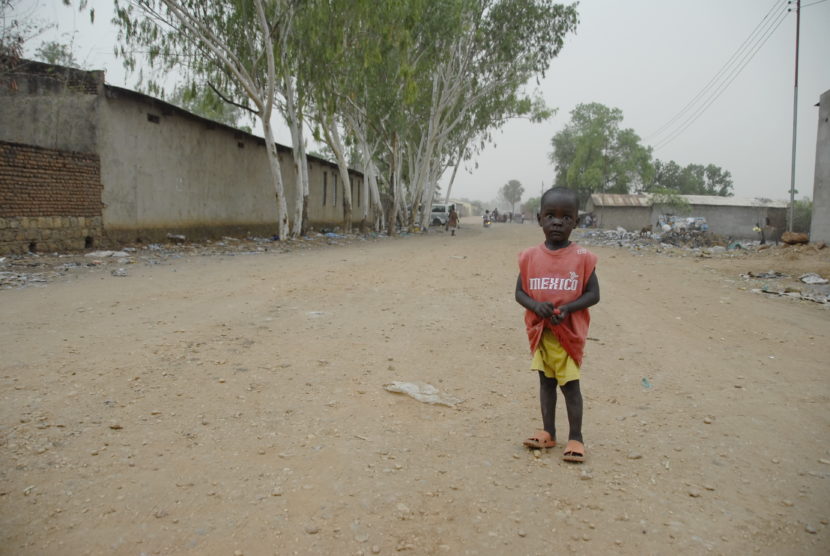Sudan’s past tensions and turmoil resurfaces in April 2023, with a civil war raging between the Sudanese military and the paramilitaries of the Rapid Support Forces (‘RSF’). At the crossroads of tensions and violence are the Sudanese population and a particularly vulnerable group in the midst of war – its children. Toppling an existing humanitarian crisis, the civil war places children in an even more dire humanitarian emergency, thereby stripping them of their fundamental human rights, such as their rights to life, protection, education, health, food and water.
Sudan’s history and past turmoil
Sudan is for the most part ethnically mixed and the Sudanese population does “boast several major ethnic groups and hundreds of subgroups” and also “speak numerous languages and dialects” (Britannica, 2023). Since its independence, Sudan has known various changes in its forms of government (Britannica, 2023). Successive regimes followed through time and it was mainly due to the difficulty to win over general acceptance from the diverse political constituencies existing in Sudan (Britannica, 2023).
Several conflicts and wars have occurred from 1955 onwards resulting in many casualties and violent incidents (Britannica, 2023). Omar al-Bashir came to power as President in 1989 with a military coup that effectively “removed the country’s last elected government” (The Guardian, 2021). Following numerous discussions, cease-fires, and agreements spread through time, the Comprehensive Peace Agreement halted the warfare situation in 2005 (Britannica, 2023).
The recent conflicts and their underlying motives
Amid an uprising that occurred in April 2019, the (now former) President Omar al-Bashir was removed from power, after having presided for 30 years (Aljazeera, 2023). An agreement was reached the same year and consisted of a “power-sharing deal paving the way for a transition to a civilian-led government” (Aljazeera, 2019). A joint military and civilian sovereign council were created to rule until 2023 (Aljazeera, 2019). However, during such an agreement period, distrust grew deep between the military and the civilian parties (Aljazeera, 2023).
Continued protests and demonstrations erupted and the central point of tension was over “the civilian demand for oversight of the military and integration of the RSF into the regular armed forces” (The Guardian, 2023). In October 2021, the Sudanese military seized power in a coup, arrested numerous civilian politicians and the prime minister, Abdalla Hamdok, and therefore dissolved the civilian section of the government (The Guardian, 2021).
While the Prime Minister was reinstated in November 2021, restoring the transition to civilian rule, he then resigned from his position in January 2022 amid the escalation of protests and subsequent deaths (VOA, 2023).
The April 2023 civil war and the consequential humanitarian crisis
Following negotiations between the military and civilian leaders in January 2023, on key contentious issues and on democratic transition, tensions emerged again between the army and the paramilitary over the proposed integration of the RSF into the regular army (VOA, 2023). On the 15th of April 2023, explosions and gunfire hit the capital of Khartoum (VOA, 2023).
“What is going on is as bad as anything I have seen in conflict zones over the course of my long career. It is horrifying, tragic, brutal, and completely unnecessary. The full array of human rights (…) are being violated”
– Radhouane Nouicer, UN expert on Human Rights in Sudan (United Nations Office of the High Commissioner, 2023).
Before the civil war erupted, the humanitarian predicament in Sudan was already dire and worsening, with around 15.8 million people requiring humanitarian assistance at the time and with “children being the most vulnerable” (UNICEF, 2023). This civil war is a crisis on top of another existing crisis in Sudan.
The intense clashes between the military and the paramilitary force have caused the deaths of over 600 persons and injured approximately 5100 persons (Care, 2023). The civil war forced a wave of civilians to leave their homes, nearly 1.4 million in total, either becoming internally displaced or refugees (CNN, 2023).
Children and their fundamental human rights endangered

Right to life and to protection
At least 9 children were killed in the current civil war and “more than 50 injured during fighting” (UNICEF, 2023). The ongoing hostilities are objecting children to harm, violence and abuse, “including recruitment and use by armed groups” (UNICEF, 2023). Children, either isolated from or displaced together with their families, face grave danger and their rights to life and protection are daily trampled.
Right to education
In 2022, it has already been recounted that 8.1 million in-school children are being severely impacted by school closures (UNICEF, 2022). Since the civil war, the number of children out of school is even more worrisome. Without school, children are deprived of safe learning spaces that would protect them from any harm, abuse or exploitation, which includes their recruitment from armed groups as child soldiers (UNICEF, 2023).
Children need learning spaces and equal access to education as it is their right, and most importantly because “for every day that children remain out of school”, their chances of returning to school are low, particularly for girls (UNICEF, 2023).
Right to health
The healthcare system in Sudan has been severely affected by the civil war, “with one-third of Sudan’s healthcare facilities no longer functioning”, therefore severely depriving children and their families of gaining access to essential healthcare services (UNICEF, 2023). Moreover, the cuts of power have equally affected the cold chain keeping the vaccines viable, therefore putting children at risk of deadly diseases and disease outbreaks (UNICEF, 2023).
On top of that, armed forces are occupying the deserted health facilities and are also looting life-saving treatments and supplies, thereby placing children’s life expectancy at a critical stage (Save the Children, 2023). Children’s right to health is so utterly breached that henceforth their survival can no longer be guaranteed.
Right to food and water
With the high-temperature climate and droughts in Sudan, access to sufficient and safe water was already a concern (UNICEF, 2023). With the civil war, there is a critical shortage of clean water and basic sanitation services available in Sudan (Norwegian Refugee Council, 2023). Conjointly, before the civil war, Sudan had the “highest rates of child malnutrition in the world” (UNICEF, 2023).
Since the hostilities started again this year, the number of malnourished children are on the rise (Care, 2023). Not only is there a food shortage due to the hostilities, but international humanitarian aid has also been halted, leaving children’s health to worsen daily (UNICEF, 2023). Without access to sufficient, safe water and enough nutrition daily, most children, especially infants, will not be able to outlive this civil war.
A call for peace and immediate humanitarian relief
Humanium is terribly concerned by the infringement of children’s fundamental human rights by the current parties to the civil war in Sudan. Humanium has regrettably found that children’s rights and wellbeing, previously already precarious, have concernedly worsened since the outbreak of the civil war. Humanium calls onto the government and to all parties concerned in the civil war to immediately:
- Resume peace discussions, for the children in Sudan (UNICEF, 2023).
- Maintain and respect the ceasefire (UNICEF, 2023).
- Ensure that humanitarian aid is restored and continuously supplied, in order to provide children and their families with adequate health, water, nutrition and protection (UNICEF, 2023).
- Reopen schools for children to enable them to resume their rightful education (UNICEF, 2023).
- Protect children and prevent the recruitment of child soldiers (UNICEF, 2023).

Humanium remains committed to safeguarding children’s human rights, including their rights to life, protection, education, health, food and water. If you want to contribute to Humanium’s cause, please consider making a donation, volunteering or becoming a member.
Written by Moïra Phuöng Van de Poël
Bibliography:
Aljazeera. (2019, August 17). Sudan protest leaders, military sign transitional government deal. Retrieved from Aljazeera at https://www.aljazeera.com/news/2019/8/17/sudan-protest-leaders-military-sign-transitional-government-deal, accessed in June 2023.
Aljazeera. (2023, April 13). Sudan’s years-long power struggle explained. Retrieved from Aljazeera at https://www.aljazeera.com/news/2023/4/13/sudans-years-long-power-struggle-explained, accessed in May 2023.
Britannica. (2023, May 29). Countries of the World: Sudan. Retrieved from Britannica at https://www.britannica.com/place/Sudan, accessed in May 2023.
CNN. (2023, May 28). Nearly 1.4 million people displaced in Sudan since civil war erupted, UN report says. Retrieved from CNN at https://edition.cnn.com/2023/05/28/africa/sudan-displaced-people-gender-violence-intl-hnk/index.html, accessed in June 2023.
Care. (2023, May 11). Humanitarian crisis in Sudan worsens, with disproportionate impacts to women and girls. Retrieved from Care at https://www.care-international.org/news/humanitarian-crisis-sudan-worsens-disproportionate-impacts-women-and-girls, accessed in June 2023.
Norwegian Refugee Council. (2023, May 19). South Sudan: Water crisis at the border as tens of thousands flee Sudan. Retrieved from Norwegian Refugee Council at https://www.nrc.no/perspectives/2023/south-sudan-water-crisis-at-the-border-as-tens-of-thousands-flee-sudan/, accessed in June 2023.
Save the Children. (2023, May 17). Sudan: Armed groups occupying health facilities, looting, cutting off lifeline for country’s children as numbers in need surge. Retrieved from Save the Children at https://www.savethechildren.net/news/sudan-armed-groups-occupying-health-facilities-looting-cutting-lifeline-country-s-children, accessed in June 2023.
The Guardian. (2023, April 27). Sudan conflict: why is there fighting and what is at stake in the region?. Retrieved from The Guardian at https://www.theguardian.com/world/2023/apr/27/sudan-conflict-why-is-there-fighting-what-is-at-stake#:~:text=Intense%20clashes%20between%20Sudan’s%20military,to%20destabilise%20the%20wider%20region, accessed in June 2023.
The Guardian. (2021, October 25). Sudan’s army seizes power in coup and detains prime minister. Retrieved from The Guardian at https://www.theguardian.com/world/2021/oct/25/sudan-coup-fears-amid-claims-military-have-arrested-senior-government-officials, accessed in June 2023.
UNICEF. (2023, April 27). Children in Sudan at high risk as armed conflict continues. Retrieved from UNICEF at https://www.unicefusa.org/stories/children-sudan-high-risk-armed-conflict-continues, accessed in June 2023.
UNICEF. (2023, April 26). Fighting in Sudan rapidly worsening an already dire humanitarian situation for children, warn UNICEF, Save the Children and World Vision. Retrieved from UNICEF at https://www.unicef.org/press-releases/fighting-sudan-rapidly-worsening-already-dire-humanitarian-situation-children-warn, accessed in June 2023.
UNICEF. (2022, June 16). Nearly 8 million children already in humanitarian need in Sudan at greater risk from growing economic crisis, hunger, conflict and harmful practices. Retrieved from UNICEF at https://www.unicef.org/sudan/press-releases/nearly-8-million-children-already-humanitarian-need-sudan-greater-risk-growing, accessed in June 2023.
United Nations Office of the High Commissioner. (2023, May 23). Sudan suffering “dehumanizing”, UN human rights expert Radhouane Nouicer. Retrieved from United Nations Office of the High Commissioner at https://www.ohchr.org/en/press-releases/2023/05/sudan-suffering-dehumanizing-un-human-rights-expert-radhouane-nouicer, accessed in June 2023.
VOA. (2023, April 15). Timeline: Sudan Unrest Post 2021 Coup. Retrieved from Voice of America at https://www.voaafrica.com/a/timeline-sudan-unrest-post-2021/7051889.html, accessed in June 2023.


